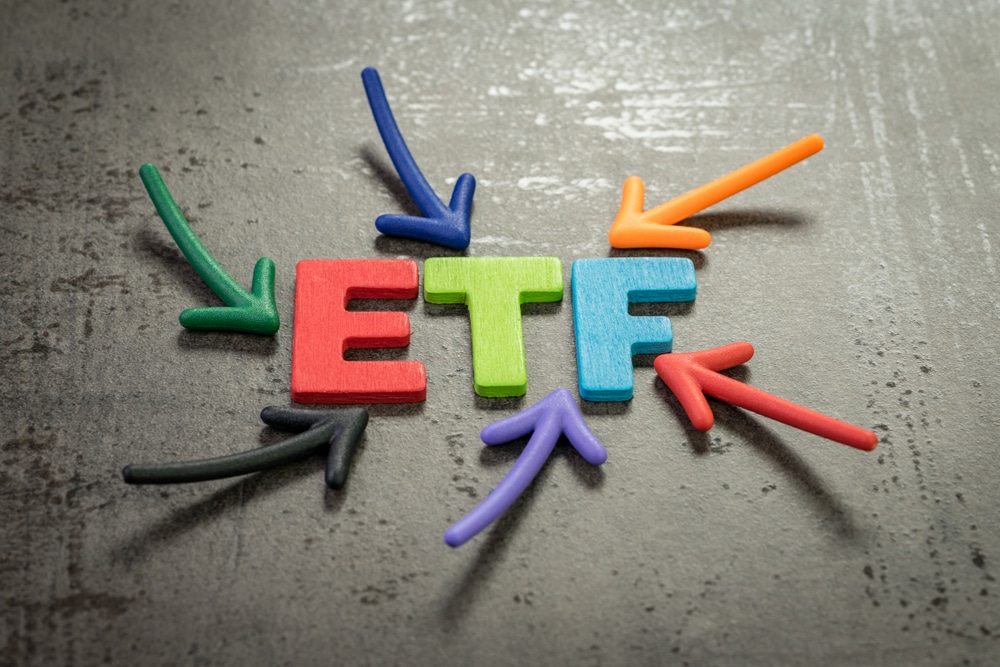Franklin Templeton one of the biggest asset management firms in the United States recently filed an application for a spot Ethereum ETF. As per the filings, the firm intends to introduce a staking option for ETH ETF.
In this manner, the investors will be able to generate an additional stream of income from their spot ETF share purchases. On this account, the Wall Street giant with $1.5 trillion AUM became the largest firm to file for an ETH spot ETF application on 12th February, 2024.
Once approved the spot ETH ETF will be listed as Franklin Ethereum ETF at the Chicago Board Options Exchange. Towards this goal, Franklin Templeton officials talked about staking a considerable portion of the Ethereum ETF to generate additional following in the footsteps of Ark 21Shares which also filed for an S-1 application last week.
The firm issued a notification claiming that with the passage of time, the sponsors will be able to stake a specified portion of the fund through one or more trusted staking service providers. This could include the affiliate of the sponsor. Franklin officials further stated that staked ETH tokens will be staked in cold storage under the supervision of the trust. In this manner, the trust will gain staking rewards such as revenue stream.
Various Financial Firms are Considering to File for Spot Ethereum ETF
The asset management firm filed for a spot ETH ETF after various other firms namely BlackRock, Fidelity, VanEck, Invesco Galaxy, Hasdex, and Grayscale already submitted a spot ETH ETF application with the Securities and Exchange Commission. The deadline for VanEck’s spot ETF application falls on 23rd May while for Ark 21Shares it is recorded at 24th May.
For Hashdex, SEC will issue a verdict on 30th May while for Grayscale it falls on 18th June and Invesco comes in last on 5th July. Meanwhile, the applications sent for approval at BlackRock and Fidelity lie at the 3rd and 7th August, 2024.
Speaking on the matter, Bloomberg’s ETF analyst James Seyffart has shared that by May 23rd, the verdict on all applicants is going to be aired. In the same manner, the Securities and Exchange Commission of the USA published a decision regarding all Bitcoin spot ETFs on 10th January, 2024.
Seyffart was joined by senior Bloomberg ETF analyst Eric Balchunas. Balchunas noted that the odds of an Ether ETF approval in 2024 declined from 70% to 60% on 30th January. With the addition of Franklin Templeton, 10 private firms filed for a Bitcoin spot ETF last month in the USA.
However, Franklin filed for Ethereum spot ETF after all other firms. Regardless, the firm praised Ethereum, Solana, and various other blockchains for their potential for ETF performance. One of the spokespersons for the firm noted that despite some challenges that ETH and its broader ecosystem recently faced, everyone is positive that it is set towards a bright future with strong tailwinds to assist its strong progress.
Verkle Tree Advantages for Solo Stakers
Ethereum co-founder Buterin recently talked about the Verkle Tree, a new protocol part of the post-Merge roadmap. This protocol uses lite-proof size and operates on less complex hardware.
As per a recent notification posted on X, Buterin noted that Verkle Tree is good for solo stakers and nodes by enabling stateless validator clients. The protocol has updated features such as running nodes on near-zero hard disk space and instant sync.
The co-founder previously shared a 5-level upgrade that will transition the Ethereum blockchain from a smart contracts network into its ultimate form. These 5 stages are namely Merge, Surge, Verge, Purge, and Splurge with Verkle Tree set to activate after the Verge phase. This phase will optimize data hosting and node size. He highlighted the details of Verkle Tree in the Ethereum improvement proposal in 2022.
Verkle Tree Vs Merkle Tree
As the name suggests, Verkle Tree serves the same function as Merkle Tree which accounts for total transactions present in a block and generates proof of all data sets for users. In this manner, blockchain users can cross-check network records.
However, Verkle Tree requires a special hash or vector commitment to process sub-nodes. The advantages are the small size of Verkle Tree proofs, lowering hardware specifications, and making Ethereum stateless since nodes validating blocks no longer need to store the state of Ethereum.
At Tokenhell, we help over 5,000 crypto companies amplify their content reach—and you can join them! For inquiries, reach out to us at info@tokenhell.com. Please remember, cryptocurrencies are highly volatile assets. Always conduct thorough research before making any investment decisions. Some content on this website, including posts under Crypto Cable, Sponsored Articles, and Press Releases, is provided by guest contributors or paid sponsors. The views expressed in these posts do not necessarily represent the opinions of Tokenhell. We are not responsible for the accuracy, quality, or reliability of any third-party content, advertisements, products, or banners featured on this site. For more details, please review our full terms and conditions / disclaimer.



